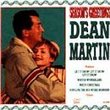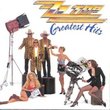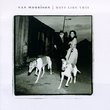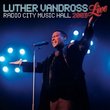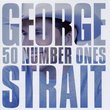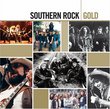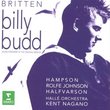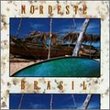| All Artists: Benjamin Britten, Richard Hickox, Simon Keenlyside, Philip Langridge, London Symphony Orchestra and Chorus Title: Britten - Billy Budd / Keenlyside · Langridge · John Tomlinson · LSO · Hickox Members Wishing: 1 Total Copies: 0 Label: Chandos Release Date: 6/27/2000 Album Type: Box set Genre: Classical Style: Opera & Classical Vocal Number of Discs: 3 SwapaCD Credits: 3 UPC: 095115982624 |
Search - Benjamin Britten, Richard Hickox, Simon Keenlyside :: Britten - Billy Budd / Keenlyside · Langridge · John Tomlinson · LSO · Hickox
 | Benjamin Britten, Richard Hickox, Simon Keenlyside Britten - Billy Budd / Keenlyside · Langridge · John Tomlinson · LSO · Hickox Genre: Classical
Herman Melville's complex tale of innocence and "moral obliquity" struck a resonant chord with Benjamin Britten, who was inspired to produce one of his finest stage works in Billy Budd (with a libretto by novelist E.M.... more » |
CD DetailsSynopsis
Amazon.com's Best of 2000 Herman Melville's complex tale of innocence and "moral obliquity" struck a resonant chord with Benjamin Britten, who was inspired to produce one of his finest stage works in Billy Budd (with a libretto by novelist E.M. Forster). This is the first recording of the revised, two-act version of the opera since Britten's own--and it's also one of the best accounts ever, hands down. --Thomas May Similarly Requested CDs
|
CD ReviewsGreat new recording of Billy Budd 07/01/2000 (5 out of 5 stars) "This Chandos set is a great one and is of superlative quality. The Britten recording contains Michael Langdon's unforgettable Clag- gart. Simon Keenlyside gives a magnificent interpretation as Billy Budd, amazing in which he combined innocence, goodness and virility, never for a moment suggesting soppiness, with the final ballad sung most affectingly. Richard Hickox realizes all the opera's drama in excellent playing. Even so, the towering single performance of Philip Langridge as Captain Vere, singing in controlled emotion and sheer vocal magic. His enemy in the opera is sung with black malevolence by John Tomlinson, sometimes too melodramatic, but there are moments of introspection which chill the listener's blood. As for the supporting roles, they are sung by some of best male voices in British opera, led by Alan Opie, Matthew Best and Alan Ewing as the three officers, vividly and meaningfully sung and so I could go on. A great performance!" Powerful Operatic Tale of Good and Evil Christopher Forbes | Brooklyn,, NY | 11/21/2003 (5 out of 5 stars) "Britten - Billy BuddBenjamin Britten consistently proved himself an operatic and dramatic genius. There are few canons in the history of opera that engage as highly on an emotional and intellectual level as Britten's operas, and certainly no other comparable canon in English. Britten consistently showed exquisite taste in choice of subject, setting of high quality poetic texts and psychological insight...that coupled with works that tackle timeless themes such as the clash of good and evil, and the individual against an uncomprehending society and you have some of the meatiest philosophical work of the 20th century. Billy Budd did not meet with immediate success. The opera was dubbed The Buggar's Opera by the British Press...a swipe at the proclivities of the opera's co-creators, Britten, E.M. Forster and Eric Crozier. The all male cast also did not endear the work to the standard opera audience initially. In 1961, Britten revised the work, streamlining it into two lengthy acts with a Prologue and Postlude, and tightening some of the passages. In this form the work has steadily gained favor, until now it may rank with Peter Grimes as the composer's most popular opera. The libretto, taken from Melville's late philosophical tale of Good and Evil aboard a British Man-o-war, is sharply drawn. The three main characters are all flesh and blood and yet represent distinct "types"...Billy Budd is fresh and honest goodness, so fresh and honest to survive in a fallen world. The Master at Arms, John Claggart, is a figure of pure evil, perhaps the best-drawn figure of evil in opera since Verdi and Boito's Iago. Billy Budd is pressed into service aboard the English ship during its wars with Napoleon. Budd is exuberant and embodies all the best qualities of youth and freshness. His attractive qualities bring him into direct conflict with Claggart, who in the opera is subliminally attracted to Billy, but so repressed that he seeks to destroy the sailor. Drawn into this clash of Good and Evil is Vere, the dreamy and heroic captain of the ship. When Claggart comes to Vere to accuse Billy of sedition, Vere knows instinctively that Billy is innocent, yet before he can do anything about it, Billy's temper gets the best of him and he strikes Claggart and kills him. Vere is then faced with the clear imperative to execute Billy for killing a superior officer, even though Vere knows that higher morality exonerates Billy. Britten and Forster take the bones of this story and arrange it in separate and increasingly powerful scenes. The opening scene including the "recruitment" of men rounded up by press gangs, is dominated by shrill wind calls that illustrate the sheer brutality of life aboard a man-o-war. Underneath there are the beautiful and moving shanties of the sailors, expressing the bleakness of their toil and life. Claggart's entrance and music as he inducts the reluctant recruits is masterful. Claggart's music is brutal and powerful, and each time he enters in subsequent scenes the hair on the back of your neck raises. Other powerfully drawn scenes include Captain Vere's drinks in his cabin with the officers, which include some of the most beautiful lyrical writing in the opera, the below deck revels of the sailors, the confrontation between Billy and Claggart, and the stunning conclusion of the work. What particularly makes this opera work is Britten's skill in differentiating all the male voices. It is rare that an opera of this length consists of only one voice gender. Perhaps the only other example I can think of is Puccini's Suor Angelica, and that is only a one-acter. Britten keeps things straight by writing highly individual music for all of his characters, even the periphery characters. Claggart's music is brutal and dark, and the voice is a basso profundo and as such immediately recognizable. Vere is a dreamy tenor, of the kind that Peter Pears played so well. Other periphery characters like the spy Squeak, or the Novice, have phrases that render them whole characters within a phrase or two. The music for Billy is perhaps the hardest to create, but Britten seems to catch both his good spirits and his temper so that the threads that make the tragedy are woven into Billy almost from the first time we meet him. Using these highly artificial musical procedures, Britten ends up creating some of the most naturalistic opera imaginable, and when all the disparate musical elements meet in the last scene, the effect is overwhelming.There are currently three widely available recordings of this opera, the original London recording, with Britten conducting and Pears as Vere, a recording with Thomas Hampson and Kent Nagano conducting, and this Chandos recording. You can't go wrong with any of them. The London recording has the advantage of Pears amazing and amazingly weird voice in a role that was written for him...and John Shirley Quirk's powerful Claggart. But to me the Chandos edges it out by a little, with Langridge's very powerful Vere. In this recording you realize that neither Billy nor Claggart is the main character of this drama, Vere is. Langridge sings the role with restraint and yet with true pathos, so that by the end, you are openly weeping for the man caught in an insoluble moral dilemma. And John Tomlinson's Claggart is even more terrifying than Shirley-Quirk. The Nagano disc has the edge on its Billy though. Thomas Hampson owns the role, though on this release Simon Keelyside does a fine job with the title character. Hickox and Nagano are both in excellent control of the material, and edge out Britten, who's rendition must be considered a benchmark in terms of tempi, but who's skills as a conductor were not always of the highest quality. On balance, I think I'd opt for this disc, were I to only own one version of the opera." Must have for Britten fans mensagrrrl | New York, NY United States | 08/07/2000 (5 out of 5 stars) "I have seen Phil Langridge do Capt. Vere a couple of times, with two different Budds, each time I was amazed at how audible the audience crying is. The man is simply amazing as Vere. This is the creme of the crop of English opera singers; Dwayne Croft and James Morris might be better vocally but these people are better actors. Great Great opera."
|

 Track Listings (6) - Disc #1
Track Listings (6) - Disc #1